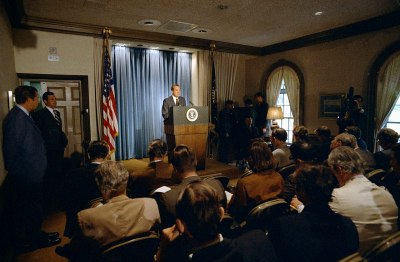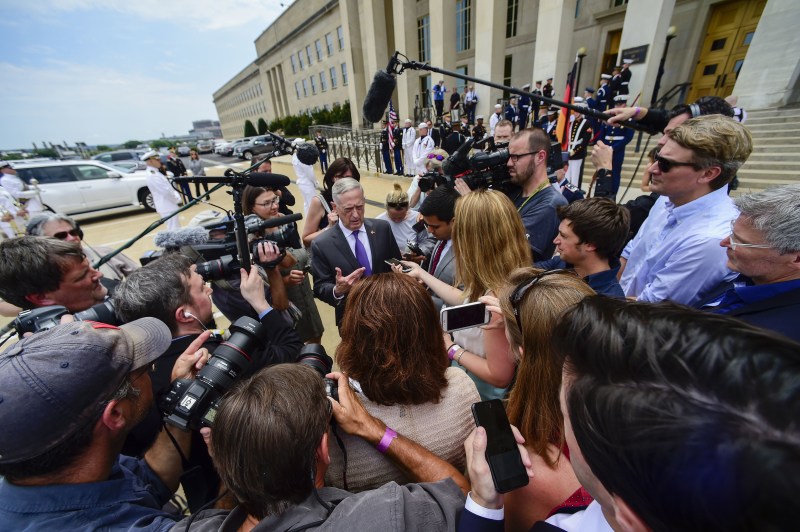We cover all manner of stories here at Hackaday, including awesome hardware hacks, the latest trends and inventions, and in-depth guides to fascinating technologies. We also cover a few news stories from the wider world outside our community, usually when they have some knock-on effect that has an impact on us. Recently this last category of stories has included laws which present a threat to online encryption and privacy in the UK and in the European Union, for example. They’re not the most joyful of news, but it’s vital for everyone with an interest in online matters to be informed about them.
A Long And Inglorious History

Those of us who have followed the world of technology will know that badly thought out laws with a negative impact on technology have a long and inglorious history. Some like the infamous backdoored Clipper chip encryption device die an inglorious death as industry or the public succeed in making them irrelevant, but others such as the Digital Millennium Copyright Act or DMCA live on for decades and present an ongoing malign influence. Most recently our ongoing coverage of dubious drone stories included a hefty dose of equally dubious action from lawmakers.
When considering these pieces of legislation it’s easy to characterise the politicians who advance them as gullible idiots easily swayed by any commercial lobbyist with a fistful of cash. But the reality is far more nuanced, while some of them may well be tempted by those lobbyists they are in most cases neither gullible nor foolish. Instead they are better characterised as clueless on technical issues, and thus easily swayed by received opinion rather than by technological reality. If there’s a fault in the system it’s that the essential feedback which provides the checks and balances is missing, and oddly while sitting here writing this story, the responsibility for this comes close to home. The solution doesn’t lie in changing the politicians, but in changing how they are treated by journalists.
Technology Meets The West Wing

Perhaps a couple of decades ago one of your pieces of required viewing was the hit TV show, The West Wing. It followed the White House staff of the fictional President Jeb Bartlett, and among its lead characters were his press and communications team. Many of the plot lines followed their relationship with the White House Press Corps, the team of accredited journalists whose job is to report on happenings in the upper echelons of power, and to hold the president to account. Where this is being written they are called the Lobby Correspondents after the central lobby of the British Houses of Parliament, and you will no doubt find similar accredited parliamentary journalists wherever there are countries with a free press.
The lobby correspondents are all specialist political journalists at the peak of their game, and what they don’t know about the inner workings of government isn’t worth knowing. Give them a fiscal policy story and they will write a pithy and insightful analysis which will successfully hold the politicians to account in the eyes of their readers, but sadly were you to give them a story with a technology angle the same can not be said. It takes a strong person to admit when they know little about a subject, and since journalists are in most cases paid to pretend to know something about everything, when faced with a complex technological issue they prefer to rely upon received opinion as what they know about it, rather than get to the real issue. The required cog in the machine of holding politicians to account is thus broken in the case of tech stories, and we’re all poorer for it.
If there’s a solution to be found for this problem, it lies in treating political coverage of technological issues as seriously for example as social or a fiscal ones. Despite the attractive perks that no doubt come with lobby accreditation, this sadly doesn’t mean that we as Hackaday writers should be authorised to walk the corridors of power. The Prime Minister doesn’t need to see me bearing down on him with a question about encryption, instead he needs to be standing at his lecturn facing the same type of political correspondents he does at the moment, but whose employers have ensured have at least a grasp of technology issues.
A Bit Of Basic Technology Education Should Be Essential
A quick scan through the ranks of British lobby correspondents reveals education in history, law, literature, English, French, and the Politics, Phlosophy and Economics, or PPE, degree which produces so many politicians. It would probably be inappropriate to demand instead that they all have physics or engineering degrees, but if no candidates with a technical background are available than there should at least be a job requirement for a basic grounding in technology. American universities have courses with titles such as “Physics for Poets“, which teaches scientific method alongside basic physics for non-scientists, and these as well as courses exploring such matters as the workings of the Internet and issues surrounding online privacy should be a career essential.
When we covered that Gatwick drone story a few years ago we ended with pleas for better evaluation and official investigation of drone reports, but we also concluded there was a need for responsible journalism on the matter. In the five years since then that has failed to materialise, and it’s not difficult to spot in that the other side of the same coin when looking at the lobby journalists. With technology issues now more central to our lives than ever before, there has never been more of a need for those who would exercise control over it to be held to account. Sadly we have to predict that even when another five years has passed, we don’t expect to be seeing a more technologically informed press corps fulfilling that need.
Featured Image: “Jim Mattis talks to the press” Department of Defense, via The Journalist’s Resource
















Here in the US whenever the politicians are finally convinced they need to consult someone with more technical knowledge things don’t get better. Instead that just means they will bring someone in who is high up within the industry and do whatever they say. Then we get a bunch of new anti-consumer laws.
B^)
One thing we can do as science and technology fluent people, is to reach out to journalistic organizations and political figures to offer free consultation. Many organizations keep lists of contacts, so that journalists can readily find information on stories. However, it does seem that they are much more likely to reach out to professors at highly ranked universities rather than less well known folks from the community with stronger or broader technology skills. It is also possible to meet with our legislators to discuss technology concerns. Having pre-established relationships might afford a higher likelihood of them reaching back out for feedback when they run into technical issues.
I tried to place that comment at the end of everything, no clue why it got posted as a reply instead…
It’s problematic because journalists are invariably people who have failed in their preferred ield. Technology is so desperate for bodies, the failures still find employment.
I don’t know about failed in the preferred field – perhaps they would rather write about technology and keep a finger to the pulse of a wider technical area than get sucked into a job that give no time to really look into anything beyond remaining expert at a small niche – to me the world is too interesting to want to get stuck to only one problem for life, perhaps many of them think the same and have the writing/presentation skills to make journalism a way to get the best of both.
Seems to me the real problem is when not technical journalists/presenter weigh in on ideas they don’t really understand in a very emotive way. Or just over hype something very cynically because it earns them more money.
In effect the same problems as the politician have.
As a young-un, I was told that those who can, do, and those who cannot, teach. I repeated it several times, as a young and arrogant student. Then, after many successful years on the job, I started getting tired of the job, despite the success. I began thinking about teaching, as it would keep me in the field but not in a position that bored me.
HAD’s own Al Williams is a great example of a “journalist” who I’ve followed for probably over twenty years, since back in the Nuts & Volts days (IIRC). I have never once questioned his capabilities.
It is the young, foolish, or arrogant who confine success to a narrow field.
There’s more to that litany. …and those who cannot teach teach teachers, and those who cannot teach teachers get elected to public office.
My experience has always been, the best way to learn something is to teach it to someone else.
Frequently they’re people who enjoy writing and would like to exercise that in addition to their job in their profession. I imagine many of the writers here (having known a couple) fit that description.
Why thank you! :)
I prefer to think of myself as having escaped into my chosen field.
Just saw this piece, and I’ll second all these other replies. (EE grad here, with a dozen years in newsrooms with audience sizes ranging from metro to global.)
Tech might be desperate for bodies, but journalism job openings are a bit of a bloodbath right now given the recent layoffs by so many newsrooms around, especially those whose parent companies are publicly traded. When I was a hiring manager for specialist reporting positions at The Associated Press, I was regularly getting around 100 applications for every one reporter opening—so I flat-out didn’t have _time_ to interview any “failures”, let alone hire them.
(And if someone had other backgrounds that could contribute to our coverage—much like Jenny’s calling for here—it certainly made it easier for me to justify calling them back!)
No no, those who can’t do, teach. Maybe I’ll accept, those who can’t teach, report. But on a more serious note, being an effective communicator is an especially useful skill even within industry. I would say that a number of upper mgmt, in my experience, have less technical ability than their employees, but are better at relaying the important aspects of that technical information to clients who may not be well versed in it.
Being an effective communicator will never reduce your level of success, and reporting is just a form of mass communication.
This is just so true, and it needs to happen for all aspects of government, I have directly consulted the Cabinet Office in the UK, the amount of ignorance from ministers and civil servants persistently leaves me speechless, and it never improves because there is no zero accountability when they ultimately mismanage and cause near catastrophes, there’s not a lot that I can say from my line of work wouldn’t break NDAs and the OSA, but there is so much information already in public domain, like the mismanagement of COVID-19 Track and Trace, and how close we came to an economic, digital, and personal rights catastrophe with the Online Safety Bill; I have written and spoken about it myself, and I can’t stress this enough, nobody in the general public cares, they simply take the position “If it was that bad, it would be all over the news”
>nobody in the general public cares, they simply take the position “If it was that bad, it would be all over the news”
Not really true. Not everyone knows enough or knows somebody who does in that field to be concerned before it becomes ‘news’ in whatever media type and location they consume information outside of their wheelhouse. Doesn’t mean they don’t care, and for the most part the really serious problems everyone hears about from various sources, with enough of them learning about it before it becomes mainstream news. Then because they do care it then goes on to become the sort of news its hard to avoid hearing about for whomever was still ignorant. At which point you hope the backlash actually matters to the folks sitting on their thrones made of money and power. For instance how long after the science was well established was it before anybody not directly involved or one order removed knew anything about climate change?
> the amount of ignorance from ministers and civil servants persistently leaves me speechless,
Now that bit is no shocker, even more so for the ministers as they tend to bounce around between wildly different departments going right in at the top with no experience of what they are now supposed to be managing. Except for the odd case of folks that get where they should be knowledgeable enough and can somehow put up with the morons that seem to make up the bulk of politician – Ben Wallace for example outlasting so many Prime minster and even more reshuffles by virtue of seemingly being competent (which with their background makes sense).
Expert in area says legislators need more education in area or trust experts of area more. True of economics, foreign policy, everything. Politicians are only experts in getting elected.
> Politicians are only experts in getting elected.
“The major problem—one of the major problems, for there are several—one of the many major problems with governing people is that of whom you get to do it; or rather of who manages to get people to let them do it to them.
To summarize: it is a well-known fact that those people who must want to rule people are, ipso facto, those least suited to do it.
To summarize the summary: anyone who is capable of getting themselves made President should on no account be allowed to do the job.”
— Douglas Adams, The Restaurant at the End of the Universe
I am reminded of H.L. Mencken who said that “Democracy is the idea that the common people know what they want, and deserve to get it good and hard.”
Founding fathers wanted only the wealthy.
https://www.voanews.com/a/usa_all-about-america_todays-democracy-isnt-exactly-what-wealthy-us-founding-fathers-envisioned/6201097.html
I would differ. There are plenty of political journalists educated in economics or foreign policy, none in tech.
I don’t think we should have *all* journalists become more tech literate. I think we should have an array of journalists (as we do), with each of them having specialties.
This journalists is fluent in foreign affairs and can ask insightful questions about how the politicians’ actions will affect the foreign conflict in Ugaslavistansylvania.
This other journalists has an additional finance background and can accurately point out the flaws in their budget plan.
Another journalists is a former tech/engineer/scientist and can use his platform to make plain the fact that the politician would have no idea how the law he is proposing would impact technology, even if he had read the whole thing.
“…the politician would have no idea how the law he is proposing would impact technology…” I think you mean to say, how the proposed law would enable people to use technology to affect other people.
And it’s not just the proposed laws; it’s also the deals governments do. Spending money e.g. on infrastructure, or prosecuting Postmasters on false computer-generated evidence, has more immediate and direct consequences, for the politicians and civil servants need to be held accountable.
“If there’s a solution to be found for this problem, it lies in treating political coverage of technological issues as seriously for example as social or a fiscal ones”
I couldn’t agree more. I have heard more about who Taylor Swift is dating and what part of Twitter/X that Elon is setting on fire than we have about the fact that net neutrality could soon be restored in US. And to regard the recent OpenAI debacle: more journalists were focusing on social “why” of Sam Altman got fired – but the fact that they made some new AI/AGI that scared the crap out of the board got zero attention.